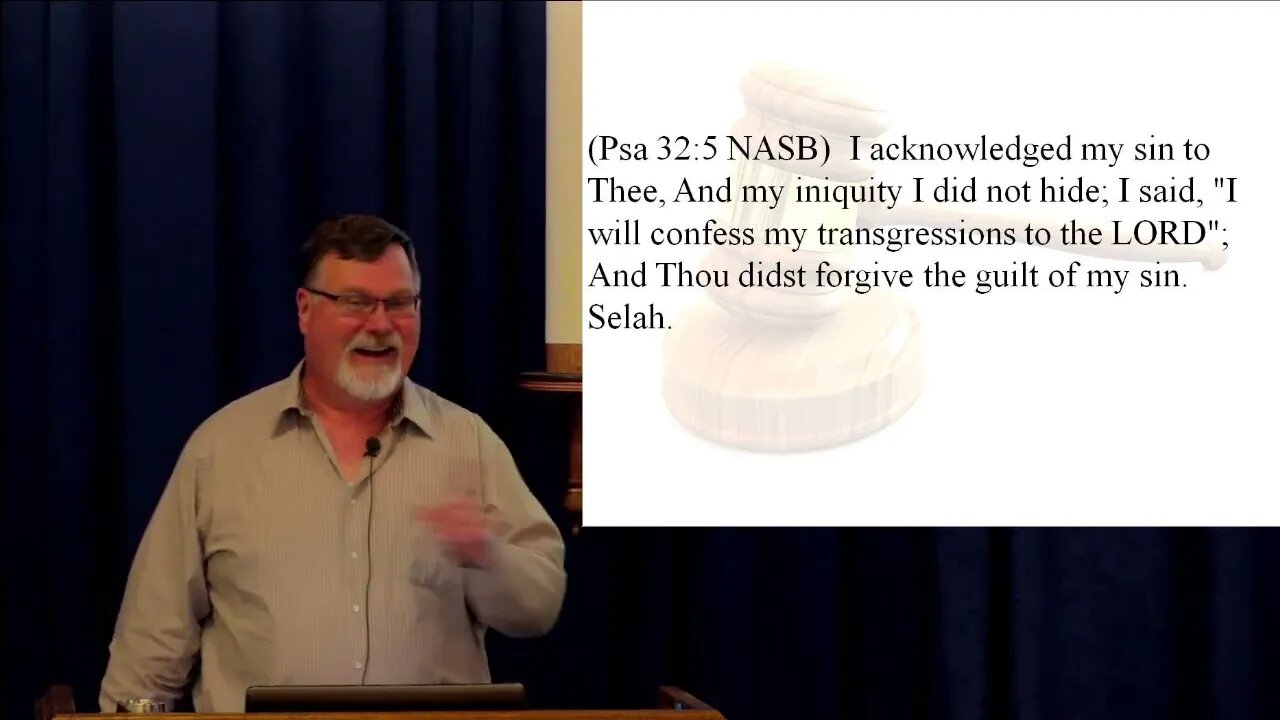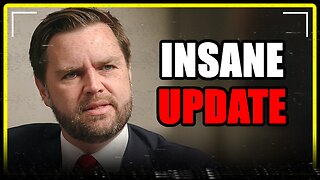Premium Only Content

Leviticus Chapter 4
This offering is the first of the non-sweet savor offerings. The first three offerings were sweet savor offerings and pointed to the person of Messiah and our relationship with Elohim.
The last two offerings are non-sweet savor offerings. They do not point to the perfect person of Messiah or of His Diety. Instead, they refer to the work of Yeshua Messiah on the tree for our sins. This offering is called the sin offering and the other non-sweet savor offering is called the trespass offering.
This chapter on the sin offering is much longer than any of the others. There must be much importance here.
This offering became the most important of all the offerings because it points to the fact that man is unclean because of his unintentional sin. The next offering is the trespass offering and speaks of the sin that man does. While there has been debate over the differences between the two offerings, the sin offering speaks of what man is because of sin, not necessarily what man does.
These two offerings secure atonement and forgiveness from Elohim for unintentional sin. This sacrifice does not apply to defiant acts or premeditated crimes. The laws of chapters 4 & 5 do not delineate which crimes for which sacrifices are mandated. If such sins are defiant or premeditated, then the penalty is what is known as the "karet," or the "cutting off" from among the people.
The punishment of the karet is viewed as a punishment from Elohim and not a punishment by the people or judges. Karet, or the cutting off from the people (or more stringent punishments such as death), was involved in a variety of religious sins such as adultery, murder, desecration of the Sabbath, or eating leaven on the Feast of the Unleavened Bread.
The difference between the sin offering and the trespass offering of chapter five is in their purpose. The sin offering purifies the accidental offender. The trespass offering (or guilt offering) is a penalty paid in the form of a sacrificial offering to Elohim. If someone could not fulfill their obligation in a vow made to someone else, the fact that it was a broken vow brought Elohim in. The offender must perform these offerings in order to make amends with Elohim. However, that person still must make amends with any person that was wronged by his breaking of the vow. That repayment must also be met with a penatly of 20% extra.
The objective of the offerings in chapters 4 and 5 is to maintain sanctity in the priesthood and among the people. Sin is a very serious issue. Most people probably take their own sin much too lightly. But that is not the case with Elohim. He takes our sin VERY seriously. Our sin must be atoned for, plus our sin makes us impure, or unclean. There are then two very important issues that must be addressed. That is the purpose of the these last two offerings.
Beit Yeshua Torah Assembly
http://beityeshua.com/
-
 13:09
13:09
Forrest Galante
8 hours agoWildlife Expert Reacts To Deadly Australian Animal TikToks
25.7K2 -
 12:08
12:08
Zoufry
1 day agoThe Mystery of Gaddafi's Final 24 Hours
5.31K4 -
 18:25
18:25
Liberty Hangout
13 days agoAnti-Ice Demonstrators Love Poop!
38K46 -
 9:39
9:39
MattMorseTV
14 hours ago $0.99 earnedVance just DROPPED a BOMBSHELL.
35.6K63 -
 23:47
23:47
GritsGG
1 day agoThe Forgotten Best Sniper Support AR!
9.89K3 -
 1:15:48
1:15:48
The Pascal Show
16 hours ago $0.10 earnedMUGSHOTS RELEASED! Emmanuel Haro's Parents Mugshot Released To The Public
8.29K1 -
 14:45
14:45
BlabberingCollector
19 hours agoKings Cross Station SET LEAKS! | Harry Potter HBO Show Update & News
7.57K -
 33:20
33:20
SB Mowing
9 days agoHealth Struggles + Endless Rain = A Yard Out of Control
16.8K18 -
 1:09:42
1:09:42
Mike Rowe
4 days agoHow Did THIS Dirty Job Make Tommy Mello A Billionaire?! | #447 | The Way I Heard It
74.9K20 -
 10:11:30
10:11:30
SpartakusLIVE
12 hours agoThe BADDEST Duo in WZ Exhibits PEAK Physique || Duos w/ Sophiesnazz to start, quads later
174K1